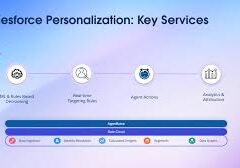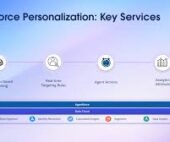The Salesforce product manager is responsible for the entire product life cycle. They need to monitor the performance of the company’s products and make necessary changes continuously. The best product managers are always thinking about ways to improve the product and make it more successful.
Salesforce product managers work with multiple stakeholders. Customers, partners, executives, and engineers all depend on the product manager to build a well-defined and holistic product experience.
Salesforce product managers conceptualize and create new products and capabilities in the Salesforce ecosystem that serve the customers’ – end user – business needs.
Product managers are responsible for providing clear release notes to business users as new Salesforce functionality is released and implemented. They deliver end-to-end product management deliverables including stakeholder analysis, product visions, product roadmaps, product requirements, prioritized product backlogs, release plans, and release notes.
Core Competencies of Salesforce Product Manager include:
- Salesforce product knowledge
- Problem-solving skills
- Agile development process
- Critical thinking and analytical skills
- Excellent communication skills
- Time management
The product manager role is responsible for the prioritization of a product’s release course and product life cycle, as well as for coordinating all the processes needed to get a product not only ready for the market but onto the market as well.
If your core Salesforce team is missing a solid Salesforce Product Manager, reach out to Tectonic today for assistance.














